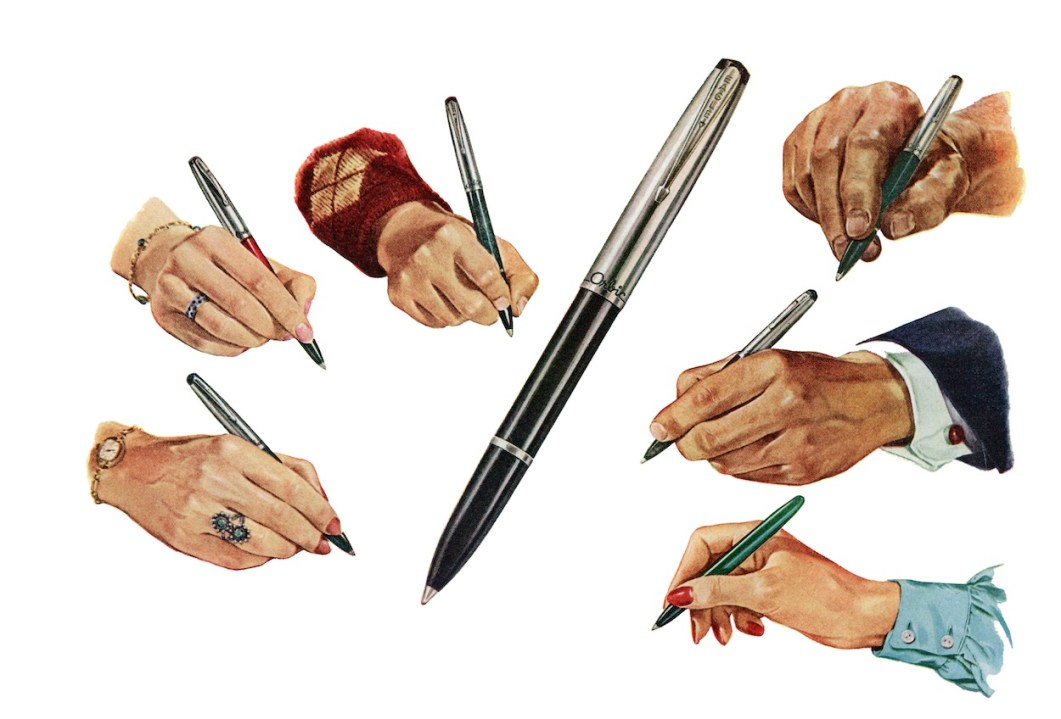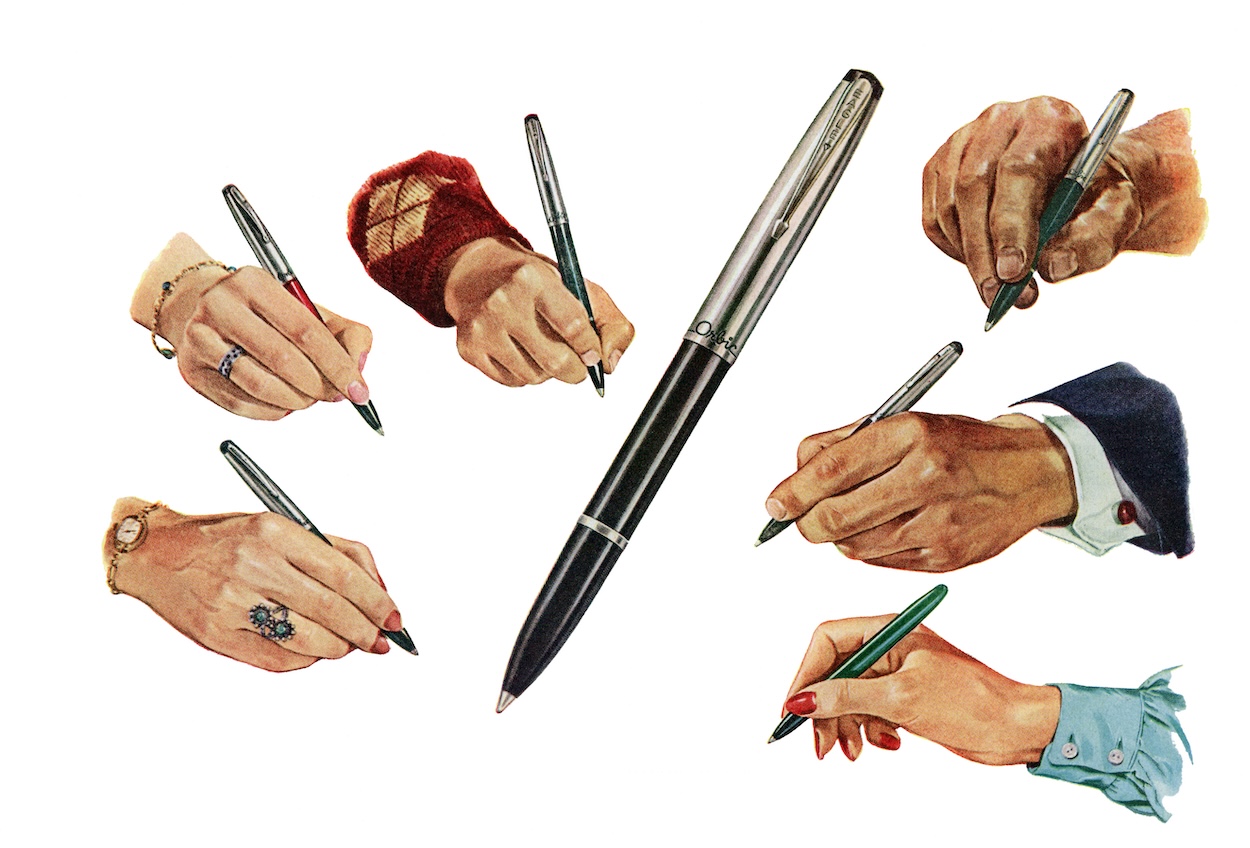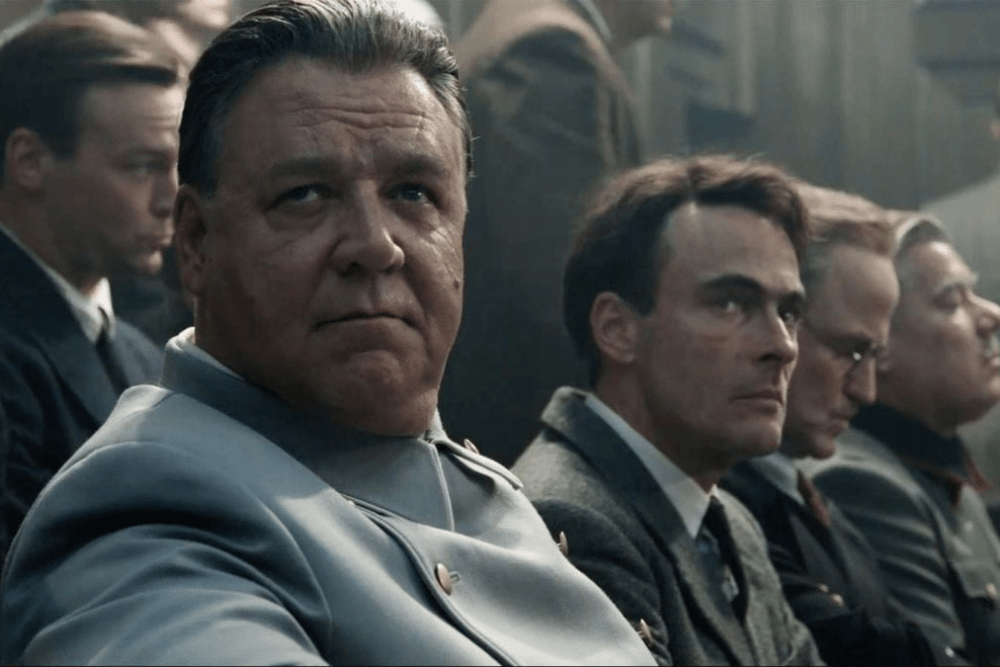Gone are the days when I always had a pen in my pocket. Gone are the days when I needed a pen to go to work. The NHS does not now always require a pen, and the NHS is not quick to abandon old technology. Ten years ago I worked in a hospital where a ward computer still had a floppy disk drive. Older readers will understand – and wince – when I say it wasn’t three-and-a-half inches but five-and-a-quarter.
I remember writing my university finals with a pen, and I remember it because I recall how it felt. The pressure of time and the pressure of the pen made the ache in my writing hand memorable. I rewrote each sentence several times, and sometimes the whole paragraph, before it reached the paper. I don’t think I’m alone in finding my thoughts quicker than my hands, even when writing in haste. These days, like almost everyone else, I don’t use a pen even to scribble a quick note – I use my phone – and for anything longer there is the keyboard. Now I don’t consider and revise my phrases as I write; I discover what they are when I see them appear on the screen.
Does the enforced slowness of a pen encourage prose that is more thoughtful, more leisured – in some fundamental way better? Hard to discern, any more than the effect of moving away from quills, or of the Sumerian decision to abandon a strictly oral tradition. History is certainly not short of examples of those who lived in a world before typing but were prolix all the same. Charles Dickens notably failed to keep his books short, and some readers have even wondered if editorial cuts could profitably have been made to Leviticus.
The effects on poetry are even less clear. The physician McCrae, resting on the step of an ambulance just north of Ypres in 1915, took out his pen and wrote ‘In Flanders Fields’. Would poets have typed out verse if they had had phones? We can’t know, since poetry died before keyboards became universal. I’ve written poems on a computer and felt them not to suffer from the technology, but since I am not a poet – someone who writes for public remembrance, rather than to discover their own sentiments – my experience goes only so far.
Pens once played such a part in normal life that they worked their way into the plots of our fiction. Thackeray’s Vanity Fair describes people’s faces and their penmanship – ‘a fine mercantile hand’, ‘a schoolboy hand’, ‘the best of characters and handwritings’. In Shaun of the Dead, the title character is pictured with his red pen bleeding into his white shirt pocket. Indiana Jones and the Last Crusade shows Sean Connery rescuing Indy by squirting a fountain pen into a foe’s eye. The consequent quip – about the pen being mightier than the sword – is almost as dated now in its first part as in its second.
As a junior doctor – harried and unhappy – it was a small but certain satisfaction to return from the hospital with three pens when I’d gone in with two. Gleaming drug company ones were good, so long as one could acquire them without the soul-cheapening tedium of listening to drug reps. Old hands wouldn’t throw away an exhausted pen, but would leave it temptingly vulnerable, knowing we’d get one over on a fellow thief. I remember the pang when an initial scribble was successful, and one’s heart leapt in joy, only for a more serious use of the pen on a distant ward to reveal the remaining ink was just a trace, and one had stolen a deliberately abandoned dud.
Beautiful script is something I admire – even if, like extreme good looks in a man, I find it slightly suspicious
These days the pot of pens in my kitchen goes largely untroubled. Chiefly I reach for it when the month’s bank statements arrive, which I annotate before abandoning them to the pile I always hope to rediscover when my accounts are due. Currently the pen pot contains mostly paintbrushes with badly chewed ends, the result of an artistic daughter and two inquisitive cats. There are a couple of broken pencils, a pen I took from the British Hernia Society in lieu of a fee for giving a talk, and – the one I’m proudest of – a branded ballpoint from my biotech startup.
I have never owned a fountain pen, nor ever discovered the skilful pleasure of their use, but then I have never had handwriting that was flattered by anything save privacy. Beautiful script is something I admire – even if, like extreme good looks in a man, I find it slightly suspicious. My aim was legibility. I’ve no idea what a graphologist would divine from reading the entrails of my dismal cursive, but they’d probably guess I was a doctor.
‘An elegant script is like a fine picture,’ wrote Erasmus, ‘it has a pleasure of its own which engages the author of a letter while he is composing it no less than the recipient’. One sees what he means, just as one sees that horses must once have been useful, and manhood once required being able to use a sword and wield a pen.








Comments